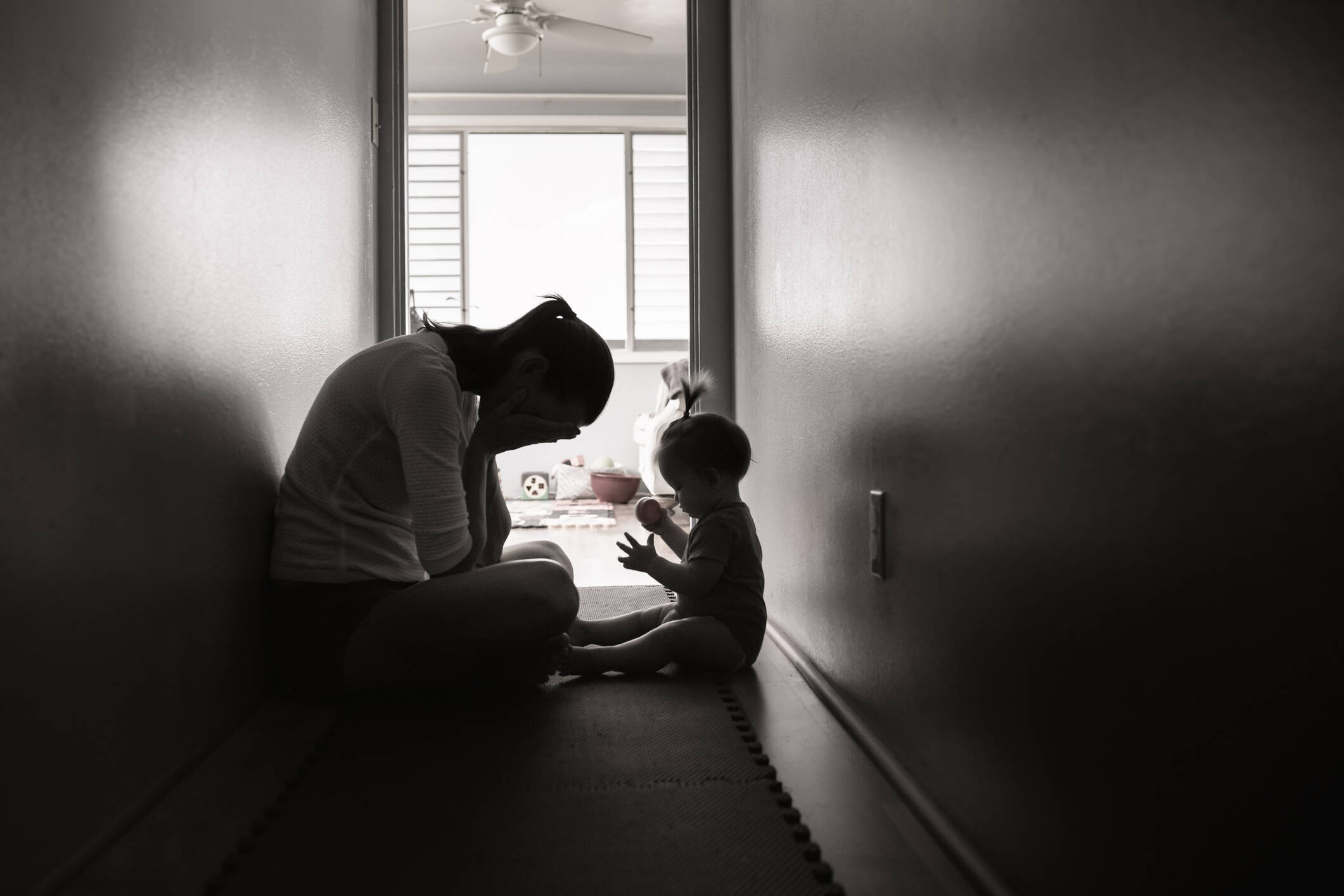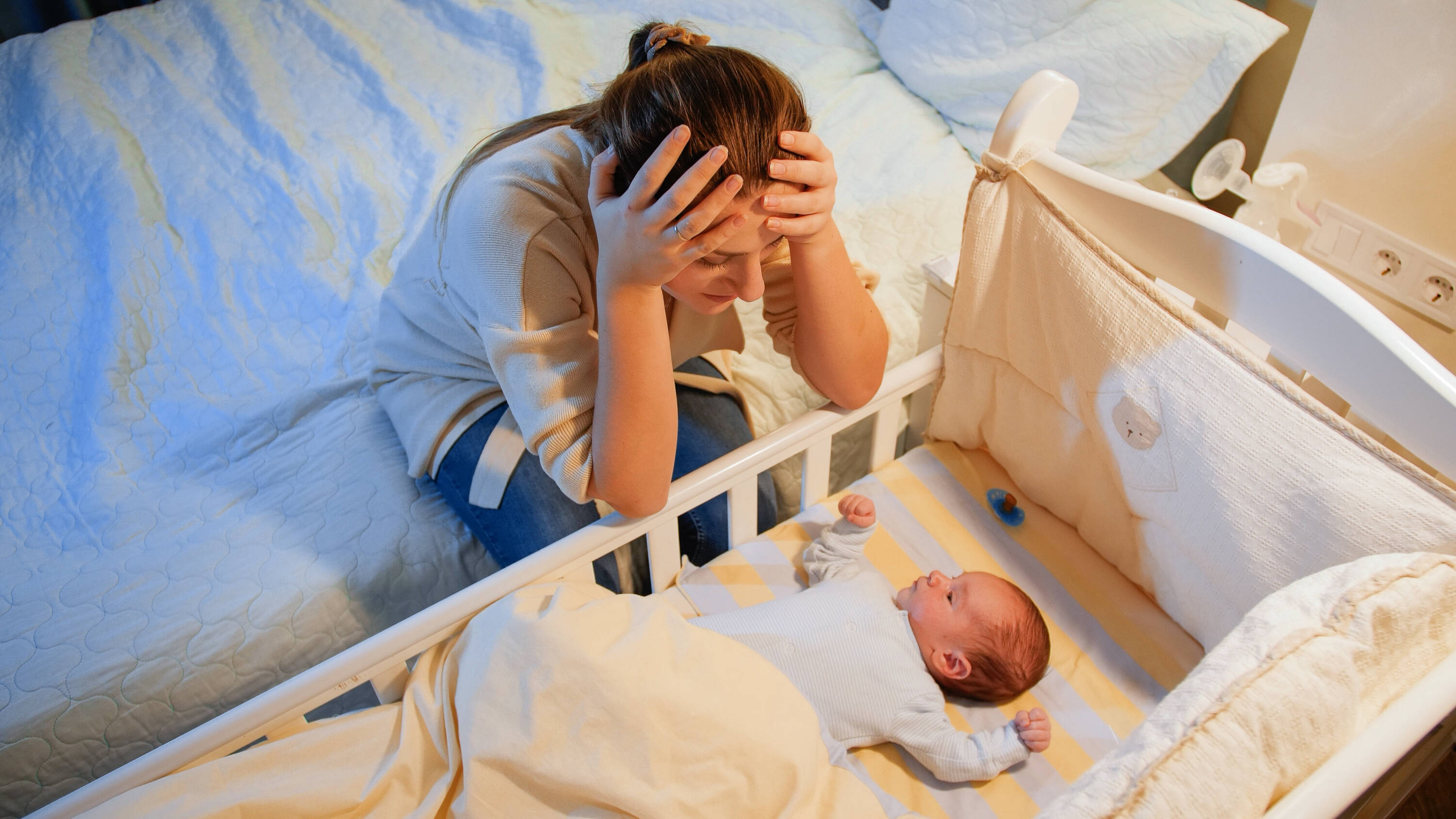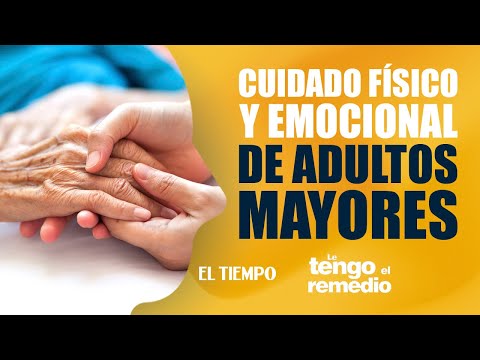Baby blues, the syndrome that affects women postpartum

The first few weeks of a baby's life test, almost daily, the new parenting manual we use to prepare ourselves and the movie-like expectations we build around those moments for nine months.
Amid the initial chaos, reality contrasts and returns to us, instead, scenes and emotions that distance us from this in a wide range of nuances; some of them even force us to silence or repress what we feel or what happens to us. “There's something in the social narrative that dictates that we have to be happy about the arrival of this baby. However, the phrase, 'I feel like I'm going to go crazy at some point,' is a constant in the office,” says Milagros Méndez Ribas, perinatal psychiatrist and director of @bezaperinatal, a comprehensive center for pregnancy and parenting.
When helplessness, anguish, frustration, and the urge to cry for no apparent reason erupt into everyday life and the adjustment to this new life, this new member, this child, women can experience different levels of sadness that should not be ignored, much less relativized . In this sense, knowing in advance concepts such as Baby Blues , a syndrome that affects 80% of postpartum women, or Postpartum Depression , a deeper condition that requires medication, and knowing how to differentiate them, ask for help, access a consultation with a health professional and manage to establish a bond, a connection - sometimes delayed by these same moods, with the baby -, becomes crucial.
In this context, postpartum and loneliness inevitably become two sides of the same coin. And if social pressure is added to this, the result can be even worse. That's why it's essential to have support, regardless of the environment. "All this vulnerability we have and feeling alone intensifies our negative emotions. Groupism, the tribe, support, gives us places of containment. The support network is one of the protective factors for maternal mental health ," highlights Andrea Szpektor, perinatal psychologist and director of @mamam.grupos, a network of parenting groups, in this chapter, outlining an alternative to mitigate the risks, fears, and guilt that birth brings, without asking permission.
Why is it crucial to pay attention to how a woman feels during this postpartum period? What happens when expectations and reality contrast sharply?
-Milagros Méndez Ribas (MMR): There's a social narrative that dictates that we should be happy about the arrival of this baby, and those around us often struggle to understand why we aren't. "The baby is healthy, you're fine, everything went well," they tell you. Well, that's what creates a lot of pressure on the family welcoming this baby. They must, or are supposed to, be a certain way. So there's a whole idealized expectation, and when it clashes so strongly with reality, that's when some problems can arise.
-Andrea Szpektor (AS): When our baby is born, we are born as mothers in a role we didn't know we were in, a role we weren't familiar with. We're not skilled at doing anything. Everything is more difficult. We're going through bodily, emotional, and social changes. “I'm not doing any of the activities I used to do: not going to work, not going to the gym, not meeting up with friends. Suddenly I'm in pajamas, my body is all messed up, and I have aches and pains that never used to. I'm uncomfortable and sleep poorly. I look in the mirror and don't recognize myself. What do I do with all this?” Some women feel that instant love, while others take longer to bond with their baby.

One of the treatments doctors recommend is psychotherapy. Photo: iStock
-MMR: Imagine if you're supposed to be happy because everything's supposed to be okay: "Where am I going to go and tell who that I'm not feeling well, that I'm not happy, that I'm anxious, that I'm scared, and that I'm frustrated?" The phrase: "I feel like I'm going to go crazy at some point" is a constant in the office.
Baby blues syndrome -Regarding moods, concepts like Baby Blues Syndrome and Postpartum Depression are beginning to emerge. Are they the same? How do they manifest?
-MMR: Baby blues or maternity blues are the same thing. They're very different from postpartum depression. Baby blues is a condition that affects 80% of women; that is, eight out of ten women will experience the baby blues. This means they may feel sad or emotionally unstable. Suddenly, a woman says, "I feel like crying," and then suddenly, "I'm fine." She may be more anxious, have sleep disorders, be more irritable, or experience sudden mood swings. These things happen, but they don't require treatment or medication. Yes, a woman may need psychotherapy, and it's also good for her partner, if there is one, to be aware of this, so that he can be supportive and the woman doesn't become frightened by what she's going through.
-AS: It's an expected condition that has to do with adjusting to the baby. It's not serious or dangerous. It's the immediate postpartum period. It's the first few days, the first three or four weeks, but after that, you start to settle down. There are hormonal, physical, and mental changes. There's this feeling of discomfort. It's very common and can be a little more or less intense in different women, but it subsides.
Postpartum depression -What happens when that intensity doesn't ease, that sadness deepens, and emotions appear that we don't know how to handle?
-AS: Postpartum depression doesn't necessarily start immediately after the postpartum period; it takes time. The state of depression is what we call sadness, with a lack of enthusiasm and interest. It's very important to be able to diagnose it and consult with a doctor.
-MMR: It's actually called perinatal depression . We started using that name in 2010 to acknowledge that women can also become depressed during pregnancy. Depression is already a psychiatric condition that requires care and medication, which—of course—we can prescribe during pregnancy, the postpartum period, and during breastfeeding, if there's a desire to breastfeed. There's still a lot of misinformation about whether women are inhibited from breastfeeding. These things shouldn't continue to happen because, in fact, breastfeeding, in many cases, protects a mother's mental health. There should be good, specialized professionals available to support and prescribe the necessary medication at that time.
How do we differentiate them? Depression is a manifestation of profound sadness. The patient doesn't feel like eating, is very fatigued, and has difficulty with everything. Her voice is slow. She has cognitive impairments, meaning she has trouble thinking, of course.
-Beyond complex cases, generally speaking, how long can postpartum depression last?
-MMR: Look, if you leave depression untreated, the patient generally begins to recover within a year. Some literature suggests two years. It depends on the case and how the woman is experiencing it.
-So the question is: when is it appropriate to consult a professional and who does it?
-AS: I would always say, because we weren't prepared, we didn't know what this was like. The reality is that it's not always necessary, it's not always necessary. But the moment you have genuine doubts about what it's like, you can start a psychoeducational consultation, where you take some tools and then you go. There's no need for treatment. Today, when we talk about mental health consultations, we're talking about health, not illness. So, a timely consultation means a consultation to "be calmer, suffer less, and have a better time." Now, there are times when you can't not have a consultation, because this will only get worse, and that's tremendous.
Paternal depression -According to studies, paternal depression affects 10% of men, but it can increase to 50% if their partner has been diagnosed with postpartum depression…
-MMR: Incredible. Yes, it's true. That's why, when a woman is diagnosed with perinatal depression, it's really cool that we can check in on her partner. Understanding this as a family system issue, right? Someone is sick, how are the rest? Because there's a baby who needs to be supported. The man has to support the woman, but things happen to him too. The man also needs to be listened to and needs support. There are groups of fathers who are hard to reach, but when they do, it's a relief to be able to share with others.
-Are we facing the same symptoms as women?
-MMR: They're different situations. Men, especially, are going to feel anger, they're going to be angry. In other words, they're going to have situations of overflow, of anger. Women, on the other hand, are more grounded. Men are going to be very angry, they're going to tend, let's say, to a way of cushioning their psychological suffering. They're going to spend all day on the game console, on social media, or at work. They put in more hours at work trying to avoid [what's happening to them]. They're even going to watch pornography. They may also have some substance abuse. They smoke more marijuana. Their self-esteem is hurt. This inability to fulfill their role. [There's] frustration and helplessness: "This isn't working for me." Of course, they're going to feel sad, right? Alterations in the bond with their partner and with their baby. These last two are the common points.

By treating postpartum depression, the symptoms will gradually disappear. Photo: iStock
I want to connect this idea of the emotions we carry with the mental burden felt by all family members, but especially women. Is this a myth?
-AS: No, no, it's not a myth. It really exists, and it's great that you bring it up because this wasn't talked about before. The mental load is having all the information in your head all the time : "Let's see... what do I pack in my bag? I have to buy diapers. Oh no, I have diapers. I still have some left, but they're small... I'll take advantage and buy some vegetables..." So, in all the activities around the house, with the baby, there are a ton of tasks. But if you just throw them out there, they're a chore: "Then I can't complain. What am I complaining about? I can't complain about that." The thing is, having everything you need and making things work requires order, and that order often falls, most of the time, on the woman. That's where the man's place as co-responsible for tasks and the mental load begins to exist. We want him to be a father, and as a father, he has all his anxieties, all his pains, all his pleasures, and all his responsibilities. It's great when shared.
Social pressure -Postpartum depression is also known as "smiling depression." Inside, the person suffers, but outside, they behave differently. Why?
-MMR: What you're bringing up is great, because that's how it is. We also know postpartum depression as smiling depression because of what we talked about at the beginning, right? It's this current social narrative that "you have to be well." So that woman won't feel empowered to say, "No, I'm not doing well, I'm sad," or, "A lot of things are happening to me." The woman withdraws. Loneliness and postpartum go hand in hand, and in this situation, it's even worse. There have been women who go out with the baby and this smile, masking everything that's happening to them, and when they come back, "I'll go to my room and cry alone." Not even in front of their partner. And sometimes months go by until they get to the doctor's office because they've had the courage or because someone saw them. That's why it's so important to hear that this happens to a lot of people.
-To put these two things together, what effects does having the support of a "tribe" or support network have in this context?
-AS: All this vulnerability and feeling alone intensifies our negative emotions. Groupism, a tribe, and support give us a place of support. Being part of a group with others who are going through similar things is amazing during the postpartum period and very important at different times in life. The support network is one of the protective factors for maternal mental health. The birth of a child is a life crisis. We're all going to go through it; it's expected and inevitable. So, the more resources, the more tools, the more support, the better. When you're in a group, fears and guilt become shared.
See also 
Older adults. Photo:
eltiempo





